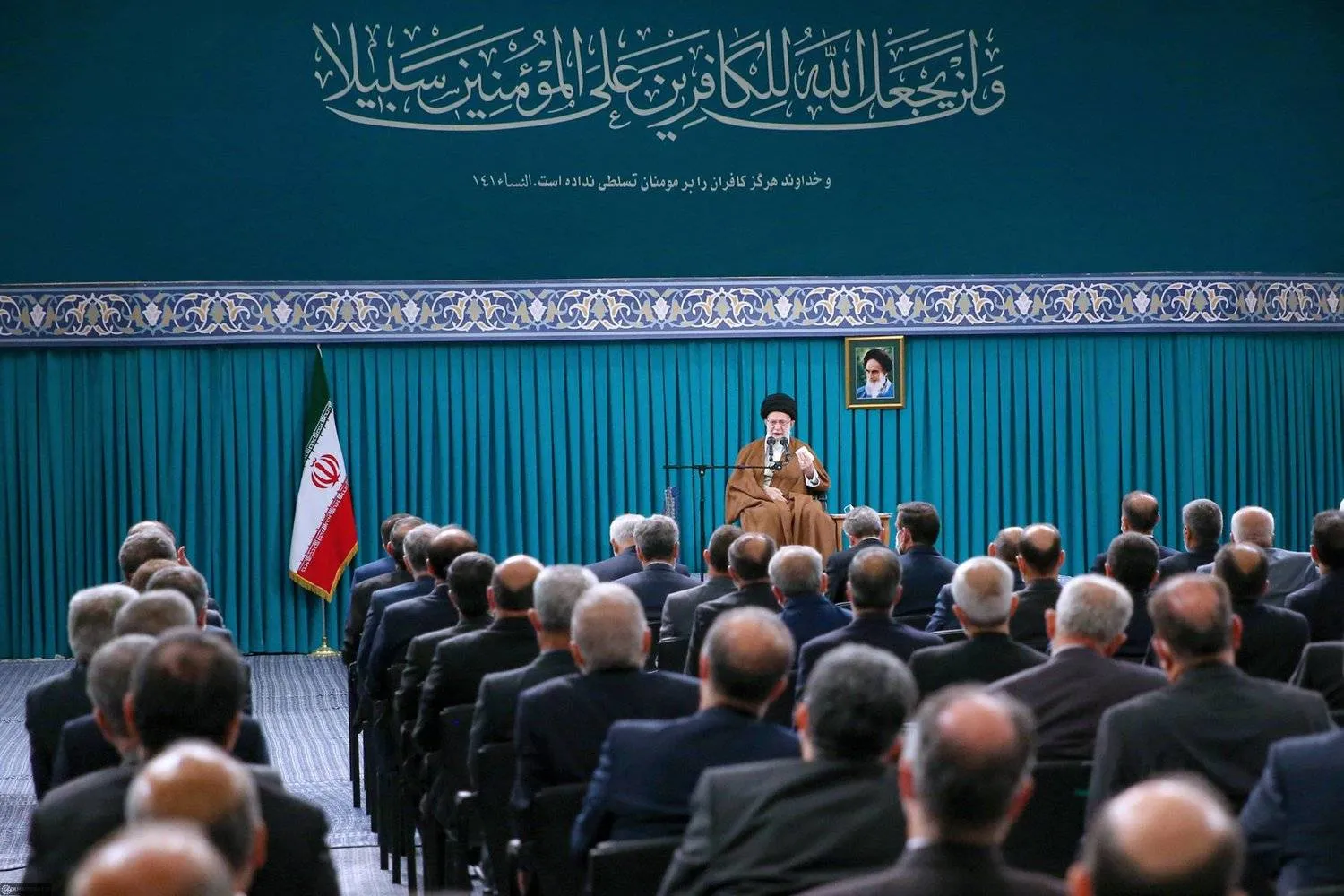Iranian Supreme Leader Ali Khamenei recently articulated “six binding principles” that define Tehran’s foreign policy in a formal statement.
Khamenei voiced his endorsement of the current administration’s strategy in fostering relationships with neighboring nations, underscoring the importance of maintaining astute and adaptable diplomacy while upholding core values.
He also issued a warning against what he labeled as “diplomacy of appeasement.”
Khamenei emphasized the importance of engaging with like-minded countries and Islamic nations, according to a statement on his official website.
He underscored the significance of a robust foreign policy and an efficient diplomatic apparatus as crucial elements for successful governance.
“The current government’s policy of establishing relations with neighboring countries is highly important and correct,” said Khamenei.
Also, he cautioned against foreign interference that fuels tensions between Iran and its neighbors.
Khamenei’s remarks on regional developments come after Saudi Arabia and Iran, mediated by China, announced an agreement on March 10 to restore diplomatic relations and reopen embassies and consulates within two months.
Regarding Tehran’s relations with Beijing and Moscow, Khamenei said: “Today, the support of some major and important world powers who share the same orientations as Iran in certain international policy movements and fundamentals is unprecedented.”
“We must appreciate this opportunity and enhance relations with those countries,” he added.
Khamenei further imposed six guidelines for the diplomatic apparatus to adhere to, emphasizing that compliance with these criteria is indicative of a successful foreign policy.
He stressed that failure to adhere to these guidelines would result in challenges within the realm of foreign policy theory, diplomatic performance, and its operations.
The first principle that Khamenei outlined is the ability to convincingly explain the rationale behind the country’s approach to various issues.
The other five principles included: “Having an effective, directive presence in various political-economic phenomena, events and currents in the world,” “Overcoming and reducing threatening policies and decisions against Iran,” “Weakening dangerous centers,” “Strengthening the governments and organizations that are allies with Iran as well as developing the country’s strategic depth,” and “The ability to detect the hidden layers in regional and global decisions and actions.”
Khamenei stressed that a good and successful foreign policy will improve the state of Iran.









